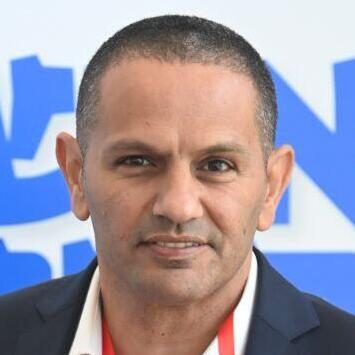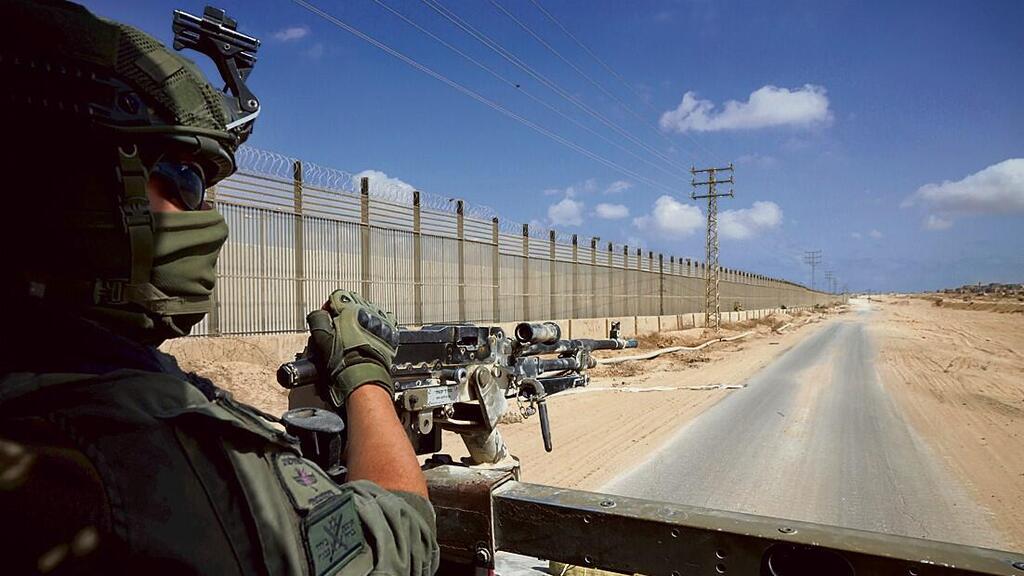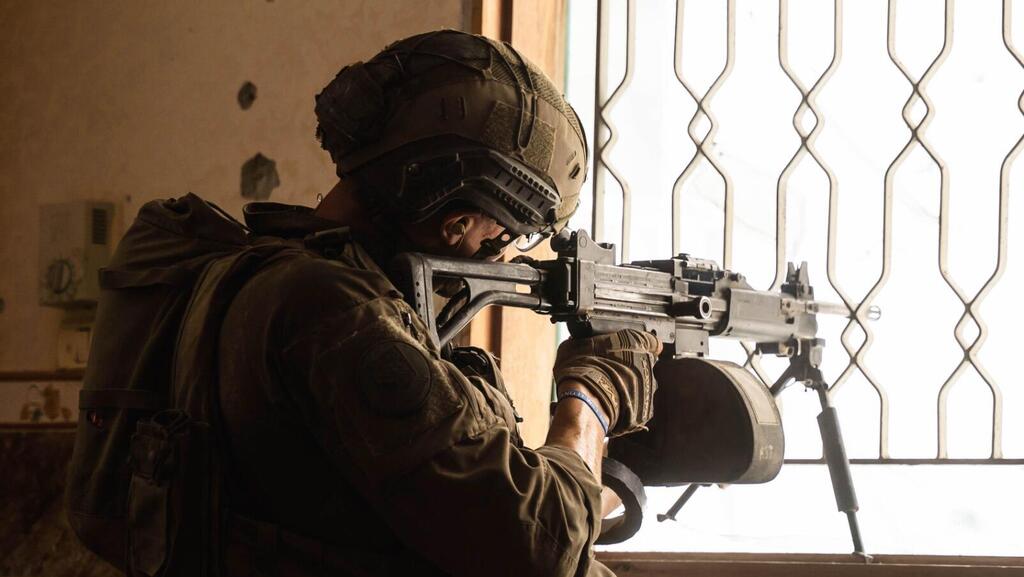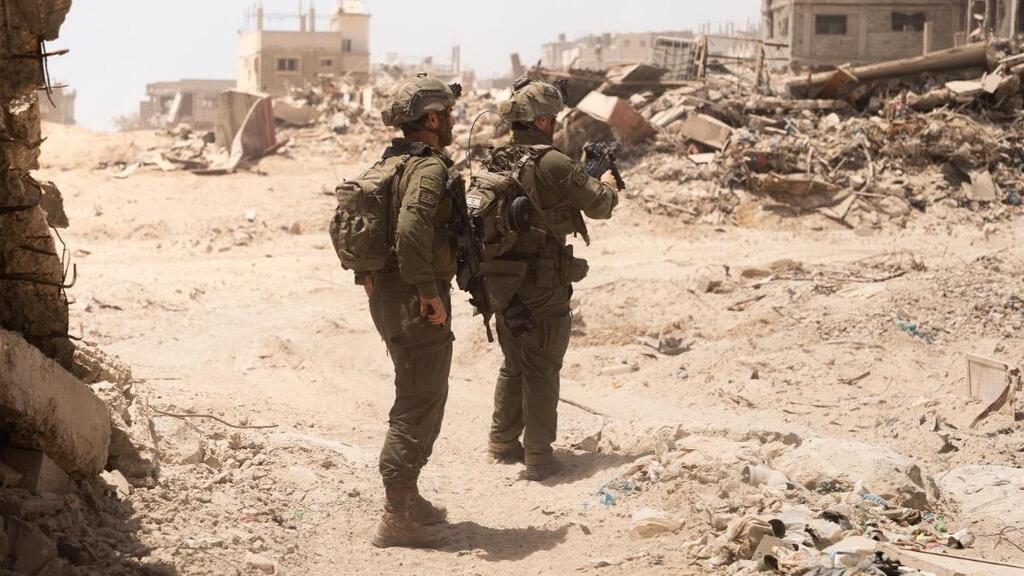Getting your Trinity Audio player ready...
The IDF Southern Command recently prepared several plans for the possibility of withdrawal from the Philadelphi Corridor after Hamas requested this as part of its agreements to a hostage deal.
These include a subterranean barrier on the Egyptian side, similar to the one built on the Gaza border, to block underground tunnels; placing sensors to indicate tunnel digging which will allow forces to enter and address the threat; and the option of establishing a “Philadelphi Brigade,” which would leave forces in the area to prevent smuggling and infiltrations.
Yedioth Ahronoth learned the IDF Southern Command wants to establish the force in Gaza. IDF Chief of Staff Lt. Gen. Herzi Halevi also presented the military’s position this week saying: "We will know how to control the corridor in various operational ways."
Those supporting leaving the corridor say that even if the forces do leave, they’ll know how to return quickly if there are indications of tunnel reconstruction. Those against leaving argue that this won’t be able to take place in the future because Hamas will reestablish itself in Rafah and the IDF won’t have the same freedom to act that it currently has in the area.
Officers opposed to the placement of sensors in the area argue that not only is their presence on the route insufficient but is also required in urban areas to locate houses from which underground tunnels originate. "We need to control the city, not the corridor," said a senior officer.
However, there is overall agreement that the Rafah area is the most important for the military to control and supervise. Hamas has transported anti-tank missiles and rockets in containers under the guise of furniture without such supervision.
Therefore, the next major challenge is deciding who will manage the Rafah crossing, which is becoming a major topic for Israeli officials against the backdrop of the ongoing hostage deal talks with Hamas.
Egypt sees great strategic and economic importance in the Rafah crossing, which connects Egypt to the Gaza Strip. Jerusalem sees the area as a strategic opportunity alongside a security risk coming from the goods passing through it without supervision.
The main issue currently facing decision-makers in Cairo and Jerusalem is the decision of who will manage the crossing on the Gazan side. Until the war began, Hamas managed the crossing. Since the IDF's operation in Rafah, the crossing's activity has been halted due to disagreement over a permanent Palestinian presence in the crossing that would not include Hamas.
Washington, Cairo and Doha all wish to see the Palestinian Authority represented at the crossing. This is a feasible solution, simpler compared to other alternatives, and acceptable to Israel security-wise.
4 View gallery
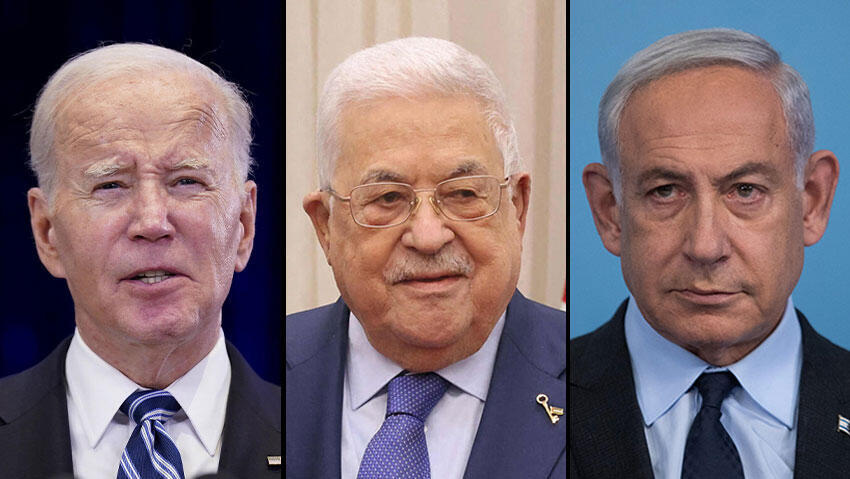

U.S. President Joe Biden, Palestnian Authority President Mahmoud Abbas, Prime Minister Benjamin Netanyahu
(Photo: GHANAIM / PPO / AFP, AP Photo/Evan Vucci, Alex Kolomoisky)
However, Israeli officials vetoed the involvement of Palestinian Authority President Mahmoud Abbas and his associates in managing the post-war Gaza Strip. This is despite arguments presented to the officials for months by knowledgeable negotiators saying the PA’s presence at the crossing would put significant pressure on Hamas in Gaza, as such a move would undermine Hamas leader Yahya Sinwar's governing ability.
In the absence of Israeli agreement to Hamas or Palestinian Authority presence, officials in Jerusalem, along with the mediators, are thinking outside the box and outside the Jerusalem-Ramallah-Gaza Rafah trifecta.
The U.S. won’t send armed forces to Gaza, nor will other Arab states, but involvement of some multinational force could take place with some central governance, even if it’s a technocratic government with multinational backing.
There are already agreements in place between Israel and Egypt on the supervision and inspection of goods and people passing through the crossing. These were achieved at the end of a long process appropriately managed by security officials which resulted in significant and precedent-setting achievements that will impact post-war Gaza.
Agreements on Israeli inspection of goods entering through Egypt and approval by Israeli security agencies for people leaving Gaza wouldn’t have been possible without trust between Israeli security officials and their Egyptian counterparts, backed by significant American support.
Ultimately, both political and military officials return to the same starting point. A statutory Palestinian entity must be found to manage the crossing on the Gazan side in coordination with Israel or some multinational force. If Israel wants to reach a hostage release agreement quickly – and it does – it seems Jerusalem will need to compromise on certain political demands.



